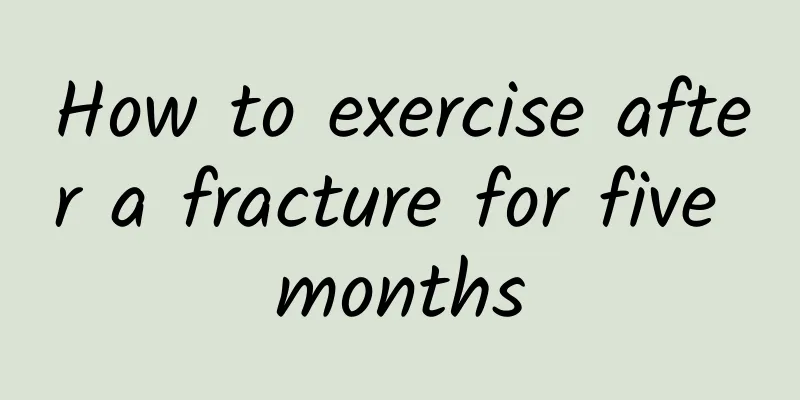Can I drink milk while taking Chinese medicine? What are the taboos?

|
There is an old saying that goes, "Medicine is not food, you can't take it randomly." In addition to taking the right medicine for the right condition, you should also pay attention to some contraindications of taking medicine. Especially for traditional Chinese medicine, many people have the impression that they should be careful about their diet when taking it, such as not drinking tea or eating radishes, mung beans, etc. Some friends may have heard that milk is not drinkable, so, can you drink milk while taking Chinese medicine? Can I drink milk while taking Chinese medicine? Milk is rich in tyramine. When an enzyme in the body that breaks down tyramine is inhibited by antihypertensive drugs, tyramine will accumulate in large quantities, causing a sudden rise in blood pressure and heart rhythm disorders. In severe cases, it can cause a sustained increase in blood pressure and even a hypertensive crisis. Many hypertensive patients do not know this. Sometimes they take medicine with milk instead of warm water, or the interval between taking antihypertensive drugs and drinking milk is too short. This danger may occur and often occurs clinically. Not only antihypertensive drugs, but also some cardiotonic drugs, such as digitalis, digoxin and other drugs, should not be drunk in large quantities by patients with heart failure, because the calcium contained in them can enhance the toxicity of digitalis and digoxin, thereby causing cumulative drug poisoning reactions and even accidents. Beta-blockers used to treat high blood pressure and prevent heart disease should not be taken with fruit juice as a reaction may occur. Taking them with tea may result in medication ineffectiveness or drug poisoning. Aspirin should not be taken with tea as it will react with tannic acid. What vegetables can't be eaten when taking Chinese medicine? 1. It is not advisable to eat radish when taking Chinese medicine (except for taking qi-regulating and phlegm-resolving medicines), because radish has the effects of digesting food and breaking up qi. Especially when taking tonic Chinese medicines such as ginseng, eating radish will reduce the effect of the tonic and make it lose its tonic effect and fail to achieve the therapeutic purpose. 2. Patients with digestive tract diseases such as hepatitis and chronic gastroenteritis should avoid taking garlic when taking spleen-strengthening, stomach-warming and stomach-regulating medicines. Garlic contains allicin, which can stimulate the gastrointestinal mucosa and cause congestion of the mucosa, and the Chinese medicine they take will not be able to effectively play its therapeutic role. 3. Do not eat chili peppers when taking Chinese medicine, especially for fever diseases. It is even more inappropriate to eat chili peppers when taking medicines for clearing heat and cooling blood or nourishing yin and reducing inflammation. Chili peppers can reduce the efficacy of the medicine, making the treatment ineffective or weakening the efficacy. The best time to take Chinese medicine Generally speaking, around 9 a.m. and 3 p.m. is the "best time" for the body to absorb drugs, so it is best to take Chinese medicine at this time. However, Chinese medicines with different medicinal properties require different times for taking them. Generally speaking, for the treatment of deficiency syndrome and gastrointestinal diseases, it should be taken 30 to 60 minutes before meals. For the treatment of heart, lung and other general diseases, it is usually best to take the drug 30 minutes after a meal to avoid irritation to the gastrointestinal tract and reduce the occurrence of side effects. Chinese medicines that aid digestion or irritate the stomach and intestines should also be taken after meals. Tonic and laxative drugs should be taken on an empty stomach before meals. Among them, laxatives such as rhubarb and hemp seed should be taken in the early morning or during the day, and avoid taking them before going to bed or at night. Anthelmintics should also be taken in the morning on an empty stomach, while tranquilizers should be taken before bedtime. |
<<: Three common methods of treating muscle atrophy with traditional Chinese medicine
>>: What are the causes of lumbar disc herniation?
Recommend
What are the benefits of DHA for pregnant women
During pregnancy, pregnant women need a lot of nu...
What to do if you have urinary stones and hematuria? Chinese medicine remedies are effective
Urethral stones are one of the common diseases of...
What cold medicine is good?
Cold is a very common disease. The incidence rate...
Symptoms of chronic fatigue syndrome
We also call chronic fatigue syndrome yuppie synd...
Can people with bad stomach eat kelp?
People with bad stomachs need to pay attention to...
Is it poisonous if beans are not cooked well?
Every time before I cook cowpeas, my son always t...
How to make your hairline look natural
I believe many people have been troubled by their...
The efficacy and indications of Uncaria rhynchophylla
Uncaria rhynchophylla is an evergreen vine plant ...
The validity period of Panax notoginseng powder
Recently, many friends have asked about the shelf...
What are the benefits of applying aloe vera on the face?
Aloe vera is a plant that is grown in many famili...
Will having a fever cause a stuffy nose?
There are many people around us who suffer from r...
How long does it take to feel fetal movement during pregnancy?
The fetal movement is determined by the developme...
Is it useful to eat sugar when you have low blood sugar?
Hypoglycemia is also relatively common in our dai...
What causes anterior pelvic tilt?
Pelvic tilt has a great impact on the human body....
Patients with lumbar disc herniation should pay attention to their sleeping posture!
Everyone has their own favorite sleeping posture....









